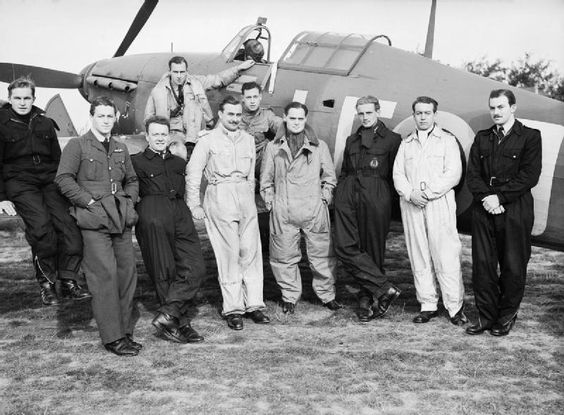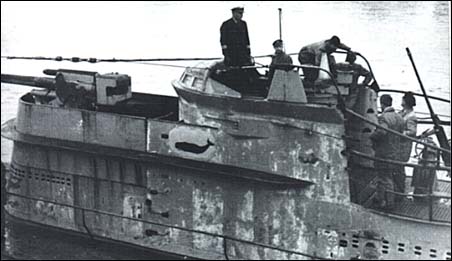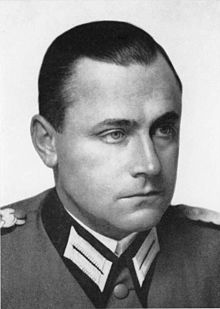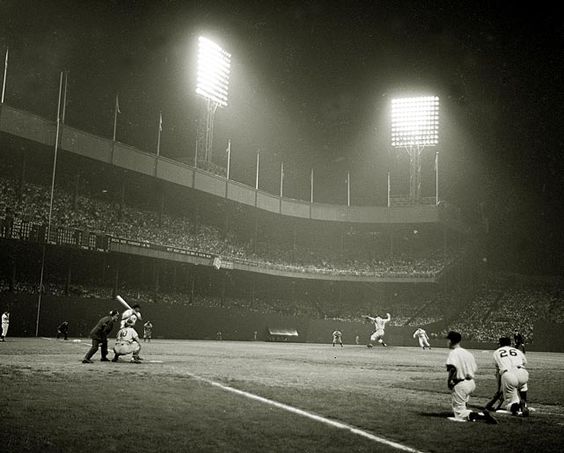Wednesday 21 August 1940
Battle of Britain: It is another blessed day (for the RAF) of poor flying weather on 21 August 1940. This gives the ground people time to repair damaged planes, bulldozers a day to clear runways, and future pilots a quiet day in class. There are various small-scale Luftwaffe operations, but generally, it is just another wasted day from the Luftwaffe's perspective.
Just after noon, a Luftwaffe formation of Dornier Do 17s from KG 2 and KG 3 crosses the coast near Norfolk and splits up into two separate groups to attack toward Norwich and Hull. RAF No. 242 Squadron intercepts effectively and disrupts the attack on Norwich, but the Hull formation continues onward. RAF No. 611 Squadron intercepts them near the coast at Skegness. Both sides take losses, and it turns out that the Dorniers were after a coastal convoy but the fighter interception prevents that. Heavy cloud cover provides a means of escape for many of the bombers.
The Luftwaffe also mounts small raids against airfields and oil installations in the southwest of England. RAF St. Eval, Binbrook, Watton and Stormy Down suffer minor damage. There is a sequence of confused bomber missions intercepted by RAF fighters from Nos. 56, 234, and 238 Squadrons which cause varying amounts of damage to both sides. RAF pilot Douglas Bader shoots down a Dornier Do 17 off Great Yarmouth.
The Luftwaffe sinks 178-ton British hulk (storage ship) Kendal and hopper barge James No. 70 at Woolston. It also bombs and sinks paddle steamer Kylemore in the North Sea off Harwich.
Coaster Letty sinks in Liverpool Bay, perhaps due to a Luftwaffe attack.
The Luftwaffe damages small British ships Alacrity and Wolseley in the English Channel not far from Falmouth.
After dark, the Luftwaffe sends lone raiders against such targets as Aberdeen, Harwich, the Firth of Forth, the Humber and a few other spots. It also drops some mines along the North Channel coast.
RAF Bomber Command makes daylight raids on Luftwaffe airfields throughout northwestern Europe. After dark, it raids oil installations at Magdeburg and Hanover (and the nearby airfield at Quakenbrück), airfields at Cam and Abbeville, the island of Texel off the north coast of Holland, and railway installations in the Ruhr industrial region and the Rhineland.
The day is pretty much a wash, with Luftwaffe losses around 15-20 planes and RAF losses 10-15. There is not much Luftwaffe fighter activity, which shows that the German bombers - contrary to legend - are quite capable of downing attacking fighters. It is worth pointing out that the poor weather is making bombing accuracy extremely difficult, and more and more bombs are dropping on civilian areas unintentionally (at this stage).
Johann Schalk, an Austrian Zerstörer ace, receives the Ehrenpokal der Luftwaffe (Honor Goblet). The Honor Goblet goes to someone who already has the Iron Cross First Class and does something to deserve special recognition, but is not seen to merit the Ritterkreuz at this point. Schalk is the first airman to receive this award.
British 339 ton freighter Letty hits a mine and sinks between Liverpool and Ireland, all hands are lost.
Danish cargo vessel Anø hits a mine and sinks in the Kattegat. Four of her 12 crew perish.
Italian submarine Dandolo torpedoes and damages Dutch tanker Hermes about 200 miles off of Lisbon. Large tankers are notoriously difficult to sink due to their construction.
Four minelayers leave Loch Aish to lay minefield SN.1 in the North Sea.
A long-range Junkers Ju 88A of 9,/KG 30 performs reconnaissance over Ireland as a form of training, but its engines fail and it crashes into the sea off Berwick. Two of the four crew survive.
Convoy OA 202 departs from Methil, Convoy FN 259 departs from Southend, Convoy RS.5 departs Durban for Aden.
U-141 (Oberleutnant zur See Heinz-Otto Schultze) is commissioned.
Battle of the Mediterranean: British submarine HMS Rorqual attacks a couple of freighters in a convoy just off Ras al Helal, Cyrenaica, Libya. It misses, then suffers an extended depth charge attack which it survives.
At Malta, there is an attempted air raid at 15:20 which results in no bombs dropped.
War Crimes: German raider Widder has been operating between the coasts of Brazil and Africa. Today, it spots 5594-ton British tramp steamer Anglo Saxon roughly midway between the two continents and attacks. The Widder uses its machine guns on the survivors as they are evacuating the ship, with the intention of leaving no survivors in the open ocean (this is later confirmed by examining the wreckage). In addition, the Widder is alleged by a survivor (there are only two out of a crew of 41) to have fired on the lifeboats after being launched. Widder Captain Ruchteschell later lamely claims to have given an order to cease fire but further alleges that the crew could not hear it over the noise of battle. This is a clear war crime (so a court later finds). It is the only time a German raider commits a war crime that results in prosecution and conviction.
US Military: Destroyers USS Walker and USS Wainwright continue their "Show the flag" operation and arrive at Pará, Brazil.
Romanian/Bulgarian Relations: The Romanian government agrees to cede more territory to a neighbor, this time giving up Southern Dobruja to Bulgaria. It does this under German pressure, and perhaps some off-the-record promises of what may happen in the future.
Soviet Government: Leon Trotsky passes away in Mexico from the injuries suffered by the ice pick attack, ordered by Stalin, by undercover NKVD agent Ramón Mercader on 20 August.
British Government: In a gesture of solidarity with its allies, the House of Commons votes to allow training in the UK of foreign government troops (Poland, Czechoslovakia, etc.) under their own flags.
German Government: Reichsmarschall Hermann Goering continues the Luftwaffe purge that he began on 20 August. The changes include appointing Adolf Galland as Geschwaderkommodore of JG 26 in place of Gotthard Handrick and appointing Oblt. Gunther Lützow as Kommodore of JG 3 in place of Oblt. Karl Vieck. Galland is still at Carinhall to receive an award (where he has been lobbying against the new close escort doctrine to no avail). He is due to return to JG 26 tomorrow, 22 August, when the command change takes effect.
The general tenor of the command changes is to replace older Luftwaffe officers with younger, more aggressive pilots who have proven themselves in this war. Many of the rank and file pilots truly like their older commanders, though, and these changes usually do not help unit performance anyway because the older commanders don't fly much (and the changes often hurt morale). The changes are not arbitrary, and in many instances make extremely good sense (as in the promotion of Galland), but there is a large element of scapegoating, too.
Vichy France: Hitler Youth chop down the "tree of liberty" planted in Saverne, Alsace after the end of World War I.
August 1940
August 1, 1940: Two RN Subs Lost
August 2, 1940: Operation Hurry
August 3, 1940: Italians Attack British Somaliland
August 4, 1940: Dueling Legends in the US
August 5, 1940: First Plan for Barbarossa
August 6, 1940: Wipe Out The RAF
August 7, 1940: Burning Oil Plants
August 8, 1940: True Start of Battle of Britain
August 9, 1940: Aufbau Ost
August 10, 1940: Romania Clamps Down On Jews
August 11, 1940: Huge Aerial Losses
August 12, 1940: Attacks on Radar
August 13, 1940: Adler Tag
August 14, 1940: Sir Henry's Mission
August 15, 1940: Luftwaffe's Black Thursday
August 16, 1940: Wolfpack Time
August 17, 1940: Blockade of Britain
August 18, 1940: The Hardest Day
August 19, 1940: Enter The Zero
August 20, 1940: So Much Owed By So Many
August 21, 1940: Anglo Saxon Incident
August 22, 1940: Hellfire Corner
August 23, 1940: Seaplanes Attack
August 24, 1940: Slippery Slope
August 25, 1940: RAF Bombs Berlin
August 26, 1940: Troops Moved for Barbarossa
August 27, 1940: Air Base in Iceland
August 28, 1940: Call Me Meyer
August 29, 1940: Schepke's Big Day
August 30, 1940: RAF's Bad Day
August 31, 1940: Texel Disaster
2020
Just after noon, a Luftwaffe formation of Dornier Do 17s from KG 2 and KG 3 crosses the coast near Norfolk and splits up into two separate groups to attack toward Norwich and Hull. RAF No. 242 Squadron intercepts effectively and disrupts the attack on Norwich, but the Hull formation continues onward. RAF No. 611 Squadron intercepts them near the coast at Skegness. Both sides take losses, and it turns out that the Dorniers were after a coastal convoy but the fighter interception prevents that. Heavy cloud cover provides a means of escape for many of the bombers.
The Luftwaffe also mounts small raids against airfields and oil installations in the southwest of England. RAF St. Eval, Binbrook, Watton and Stormy Down suffer minor damage. There is a sequence of confused bomber missions intercepted by RAF fighters from Nos. 56, 234, and 238 Squadrons which cause varying amounts of damage to both sides. RAF pilot Douglas Bader shoots down a Dornier Do 17 off Great Yarmouth.
The Luftwaffe sinks 178-ton British hulk (storage ship) Kendal and hopper barge James No. 70 at Woolston. It also bombs and sinks paddle steamer Kylemore in the North Sea off Harwich.
Coaster Letty sinks in Liverpool Bay, perhaps due to a Luftwaffe attack.
The Luftwaffe damages small British ships Alacrity and Wolseley in the English Channel not far from Falmouth.
After dark, the Luftwaffe sends lone raiders against such targets as Aberdeen, Harwich, the Firth of Forth, the Humber and a few other spots. It also drops some mines along the North Channel coast.
RAF Bomber Command makes daylight raids on Luftwaffe airfields throughout northwestern Europe. After dark, it raids oil installations at Magdeburg and Hanover (and the nearby airfield at Quakenbrück), airfields at Cam and Abbeville, the island of Texel off the north coast of Holland, and railway installations in the Ruhr industrial region and the Rhineland.
The day is pretty much a wash, with Luftwaffe losses around 15-20 planes and RAF losses 10-15. There is not much Luftwaffe fighter activity, which shows that the German bombers - contrary to legend - are quite capable of downing attacking fighters. It is worth pointing out that the poor weather is making bombing accuracy extremely difficult, and more and more bombs are dropping on civilian areas unintentionally (at this stage).
Johann Schalk, an Austrian Zerstörer ace, receives the Ehrenpokal der Luftwaffe (Honor Goblet). The Honor Goblet goes to someone who already has the Iron Cross First Class and does something to deserve special recognition, but is not seen to merit the Ritterkreuz at this point. Schalk is the first airman to receive this award.
British 339 ton freighter Letty hits a mine and sinks between Liverpool and Ireland, all hands are lost.
Danish cargo vessel Anø hits a mine and sinks in the Kattegat. Four of her 12 crew perish.
Italian submarine Dandolo torpedoes and damages Dutch tanker Hermes about 200 miles off of Lisbon. Large tankers are notoriously difficult to sink due to their construction.
Four minelayers leave Loch Aish to lay minefield SN.1 in the North Sea.
A long-range Junkers Ju 88A of 9,/KG 30 performs reconnaissance over Ireland as a form of training, but its engines fail and it crashes into the sea off Berwick. Two of the four crew survive.
Convoy OA 202 departs from Methil, Convoy FN 259 departs from Southend, Convoy RS.5 departs Durban for Aden.
U-141 (Oberleutnant zur See Heinz-Otto Schultze) is commissioned.
Battle of the Mediterranean: British submarine HMS Rorqual attacks a couple of freighters in a convoy just off Ras al Helal, Cyrenaica, Libya. It misses, then suffers an extended depth charge attack which it survives.
At Malta, there is an attempted air raid at 15:20 which results in no bombs dropped.
 |
| The SS Anglo Saxon. |
US Military: Destroyers USS Walker and USS Wainwright continue their "Show the flag" operation and arrive at Pará, Brazil.
Romanian/Bulgarian Relations: The Romanian government agrees to cede more territory to a neighbor, this time giving up Southern Dobruja to Bulgaria. It does this under German pressure, and perhaps some off-the-record promises of what may happen in the future.
Soviet Government: Leon Trotsky passes away in Mexico from the injuries suffered by the ice pick attack, ordered by Stalin, by undercover NKVD agent Ramón Mercader on 20 August.
British Government: In a gesture of solidarity with its allies, the House of Commons votes to allow training in the UK of foreign government troops (Poland, Czechoslovakia, etc.) under their own flags.
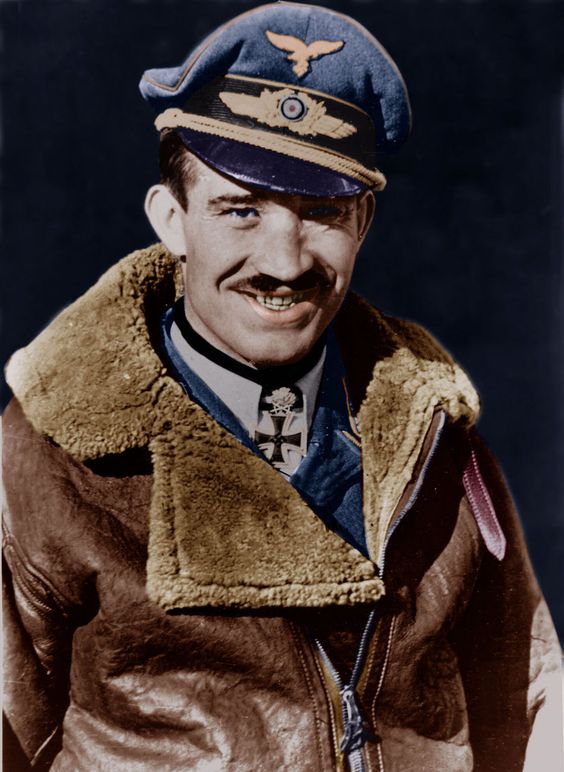 |
| Adolf Galland. Many consider him the greatest fighter pilot of all time. |
The general tenor of the command changes is to replace older Luftwaffe officers with younger, more aggressive pilots who have proven themselves in this war. Many of the rank and file pilots truly like their older commanders, though, and these changes usually do not help unit performance anyway because the older commanders don't fly much (and the changes often hurt morale). The changes are not arbitrary, and in many instances make extremely good sense (as in the promotion of Galland), but there is a large element of scapegoating, too.
Vichy France: Hitler Youth chop down the "tree of liberty" planted in Saverne, Alsace after the end of World War I.
 |
| Leon Trotsky late in life, apparently looking at a picture of himself in the newspaper. Trotsky remains a cult political figure in the 21st Century. |
August 1940
August 1, 1940: Two RN Subs Lost
August 2, 1940: Operation Hurry
August 3, 1940: Italians Attack British Somaliland
August 4, 1940: Dueling Legends in the US
August 5, 1940: First Plan for Barbarossa
August 6, 1940: Wipe Out The RAF
August 7, 1940: Burning Oil Plants
August 8, 1940: True Start of Battle of Britain
August 9, 1940: Aufbau Ost
August 10, 1940: Romania Clamps Down On Jews
August 11, 1940: Huge Aerial Losses
August 12, 1940: Attacks on Radar
August 13, 1940: Adler Tag
August 14, 1940: Sir Henry's Mission
August 15, 1940: Luftwaffe's Black Thursday
August 16, 1940: Wolfpack Time
August 17, 1940: Blockade of Britain
August 18, 1940: The Hardest Day
August 19, 1940: Enter The Zero
August 20, 1940: So Much Owed By So Many
August 21, 1940: Anglo Saxon Incident
August 22, 1940: Hellfire Corner
August 23, 1940: Seaplanes Attack
August 24, 1940: Slippery Slope
August 25, 1940: RAF Bombs Berlin
August 26, 1940: Troops Moved for Barbarossa
August 27, 1940: Air Base in Iceland
August 28, 1940: Call Me Meyer
August 29, 1940: Schepke's Big Day
August 30, 1940: RAF's Bad Day
August 31, 1940: Texel Disaster
2020

